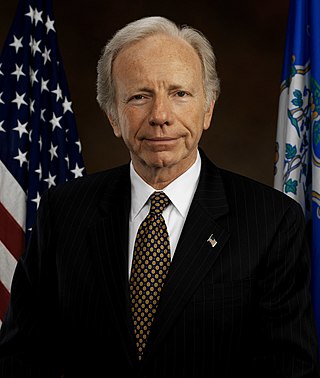
Joseph Isadore Lieberman is an American politician, lobbyist, and attorney who served as a United States senator from Connecticut from 1989 to 2013. A former member of the Democratic Party, he was its nominee for vice president of the United States in the 2000 U.S. presidential election. During his final term in office, he was officially listed as an independent Democrat and caucused with and chaired committees for the Democratic Party.

Samuel Atkinson Waterston is an American actor. Waterston is known for his work in theater, television, and film. He has received numerous accolades including a Primetime Emmy Award, Golden Globe Award, and Screen Actors Guild Award as well as nominations for an Academy Award, a Tony Award, and a BAFTA Award. His acting career has spanned over five decades acting on stage and screen. Waterston received a star on the Hollywood Walk of Fame in 2010 and was inducted into the American Theater Hall of Fame in 2012.
In the United States, a political action committee (PAC) is a tax-exempt 527 organization that pools campaign contributions from members and donates those funds to campaigns for or against candidates, ballot initiatives, or legislation. The legal term PAC was created in pursuit of campaign finance reform in the United States. Democracies of other countries use different terms for the units of campaign spending or spending on political competition. At the U.S. federal level, an organization becomes a PAC when it receives or spends more than $1,000 for the purpose of influencing a federal election, and registers with the Federal Election Commission (FEC), according to the Federal Election Campaign Act as amended by the Bipartisan Campaign Reform Act of 2002. At the state level, an organization becomes a PAC according to the state's election laws.

Samuel Augustus Nunn Jr. is an American politician who served as a United States Senator from Georgia (1972–1997) as a member of the Democratic Party.
A 527 organization or 527 group is a type of U.S. tax-exempt organization organized under Section 527 of the U.S. Internal Revenue Code. A 527 group is created primarily to influence the selection, nomination, election, appointment or defeat of candidates to federal, state or local public office.
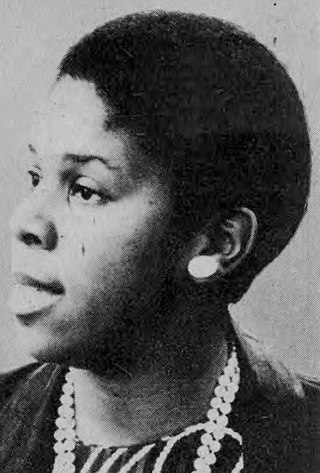
Lenora Branch Fulani is an American psychologist, psychotherapist, and political activist. She is best known for her presidential campaigns and development of youth programs serving minority communities in the New York City area. In the 1988 United States presidential election heading the New Alliance Party ticket, she became the first woman and the first African American to achieve ballot access in all fifty states. She received more votes for president in a U.S. general election than any other woman until Jill Stein of the Green Party of the United States in 2012. Fulani's political concerns include racial equality, gay rights, and political reform, specifically to encourage third parties.
The "Stand By Your Ad" provision (SBYA) of the Bipartisan Campaign Reform Act, enacted in 2002, requires candidates in the United States for federal political office, as well as interest groups and political parties supporting or opposing a candidate, to include in political advertisements on television and radio "a statement by the candidate that identifies the candidate and states that the candidate has approved the communication". The provision was intended to force political candidates running any campaign for office in the United States to associate themselves with their television and radio advertising, thereby discouraging them from making controversial claims or attack ads.

In the United States 2008 Democratic Party presidential primaries, the total number of delegates was 4050. Delegates required for nomination were 2118.
The Independent Greens of Virginia was the state affiliate of the Independence Party of America in the Commonwealth of Virginia. It became a state party around 2003 when a faction of the Arlington local chapter of the Green Party of Virginia (GPVA) split from the main party. As of 2011, it bills itself as a "fiscally conservative, socially responsible green party", with an emphasis on rail transportation and "more candidates". In support of wider ballot participation, it endorses many independent candidates who are not affiliated with the party.

Gerald Monroe Rafshoon is an American television producer and political operative. He is one of the four founding members of Unity08, and was the White House Communications Director under the presidency of Jimmy Carter. In doing so, Rafshoon became the first professional advertising executive to join the White House staff.
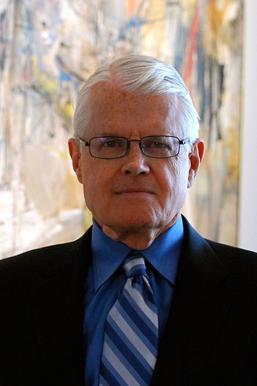
Doug Bailey was an American political consultant and founder of The Hotline, a bipartisan, daily briefing on American politics.
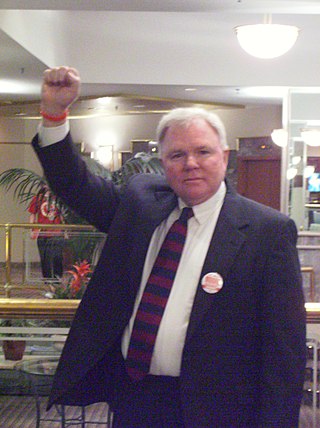
Brian Patrick Moore is an American politician and founder of antiwar organization Nature Coast Coalition for Peace & Justice. A perennial candidate, he was the presidential nominee of the Socialist Party USA for the 2008 United States presidential election; he waged several campaigns for mayor and city council in Washington, D.C., and twice ran for the United States House of Representatives from Florida's 5th congressional district, winning none; he ran for the Democratic Party nomination for Governor of Florida in 2010, but lost in the primary election.

The Draft Bloomberg movement is a political draft movement in the United States that launched in 2007 as an effort to convince New York City Mayor Michael Bloomberg to run for President of the United States as an independent candidate in the 2008 election. The movement ended for that election cycle on February 28, 2008, when Bloomberg formally announced that he would not run for president.
The Libertarian Party of the United States was formed in Colorado Springs in the home of Luke Zell by a group of individuals led by David Nolan on December 11, 1971, after several months of debate among members of the Committee to Form a Libertarian Party, founded July 17. The formation was prompted in part by price controls and the end of the Gold Standard implemented by President Richard Nixon. The Libertarian Party viewed the dominant Republican and Democratic parties as having diverged from what they viewed as the libertarian principles of the American Founding Fathers. This group included John Hospers, Edward Crane, Manuel Klausner, Murray Rothbard, Roy Childs, D. Frank Robinson, Theodora (Tonie) Nathan, and Jim Dean.
No Labels is an American political organization whose stated mission is to support centrism and bipartisanship. In 2010, No Labels was founded as a 501(c)(4) with Nancy Jacobson as its board president, and as of 2022, CEO.

Americans Elect was a political organization in the United States known primarily for its efforts to stage a national online primary for the 2012 US Presidential Election. Although it was successful in obtaining signatures to get on the ballot in a majority of states, the process set up by the organization did not select a candidate.
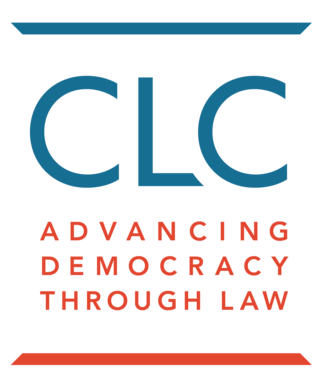
Campaign Legal Center (CLC) is a nonprofit 501(c)(3) government watchdog group in the United States. CLC supports strong enforcement of United States campaign finance laws. Trevor Potter, former Republican chairman of the Federal Election Commission, is CLC's founding president.

The Workers World Party (WWP) is a revolutionary Marxist–Leninist communist party founded in 1959 by a group led by Sam Marcy of the Socialist Workers Party (SWP). Marcy and his followers split from the SWP in 1958 over a series of long-standing differences, among them their support for Henry A. Wallace's Progressive Party in 1948, their view of People's Republic of China as a workers' state, and their defense of the 1956 Soviet intervention in Hungary, some of which the SWP opposed.

Roger Moore Craver is an American fundraiser and campaigner for progressive causes. A pioneer of liberal political and movement direct mail and co-founder of The Hotline, a bipartisan online briefing on American politics, Craver is currently Editor of TheAgitator.net.
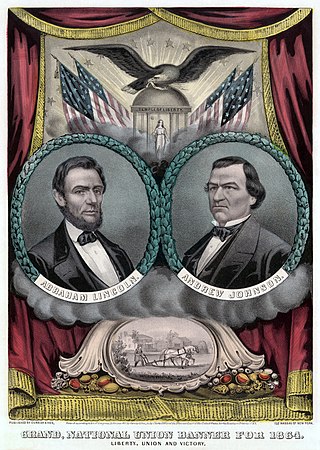
In a presidential system, a unity ticket is a form of ticket balance in which a candidate and a running mate of separate political parties run on a single ticket. Candidates may retain their separate political parties for the duration of the election, or they may adopt a new party name to represent their unified platform. In a system where the running mate is next in line for the presidency, a unity ticket can cause a mid-term shift in policy if the president dies or is removed from office. Unity tickets are common during periods of political realignment.













